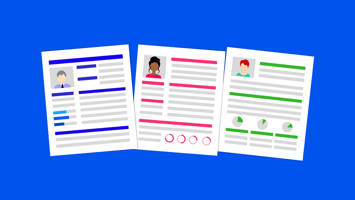A company's culture can have a significant impact on its employees, customers, and overall success....
Job Interview Prep: How to Conduct Good Research and Be Ready to Win
Job interviews are a critical step in the journey to securing your dream job. They are your opportunity to shine, to prove that you're the right fit for the position, and to leave a lasting impression on your potential employer. However, success in an interview doesn't come by chance. It's the result of meticulous preparation, and one of the most crucial aspects of that preparation is conducting thorough research beforehand. Let's explore some best practices for conducting effective pre-interview research, helping you stand out from the competition and ace that interview.
- Understand the Company
The foundation of your pre-interview research is a solid understanding of the company you're interviewing with. Here's what you should focus on:
-
Mission and Values: Start by exploring the company's mission statement and core values. This will give you insight into what they stand for and their long-term objectives.
-
Products/Services: Familiarize yourself with the company's products or services. Understand what they offer, how they do it, and any recent innovations or developments.
-
Industry and Competitors: Research the industry the company operates in. Who are their main competitors, and what sets them apart? Having this knowledge demonstrates that you're aware of the broader landscape.
-
Recent News and Press Releases: Stay up-to-date with the company's recent news and press releases. This will help you understand their current challenges, successes, and future plans.
-
Company Culture: Learn about the company's culture. Are they known for a collaborative environment, innovation, or a particular work style? This knowledge will help you gauge whether you'd be a good fit.
-
Leadership Team: Get to know the key leaders within the company. Understanding their backgrounds and roles can provide valuable insights.
- Study the Job Description
The job description is your roadmap to tailoring your interview responses. Pay close attention to:
-
Key Responsibilities: Identify the core responsibilities of the role you're applying for. What are the primary tasks you'll be expected to handle?
-
Required Skills and Qualifications: Take note of the skills and qualifications the company is looking for in a candidate. Think about how your experience aligns with these requirements.
-
Company Culture Fit: Often, job descriptions provide hints about the company's culture and the type of candidate they're seeking. Are they looking for someone who's independent or collaborative? Analyze the language used.
-
Unique Requirements: Check for any unique or specific requirements mentioned in the job description. These could be related to industry certifications or specialized knowledge.
- Leverage Online Resources
The internet is a treasure trove of information, and you can use it to your advantage when conducting pre-interview research:
-
Company Website: Start with the company's official website. It's a goldmine of information about their history, products, services, and culture.
-
LinkedIn: LinkedIn is a powerful tool for researching both the company and its employees. Follow the company's LinkedIn page and explore the profiles of current employees, especially those in roles similar to the one you're interviewing for.
-
Glassdoor and Indeed: Websites like Glassdoor and Indeed provide valuable insights into company reviews and interview experiences from current and former employees. While considering these reviews, keep in mind that they represent a range of perspectives.
-
News Articles: Search for news articles or interviews featuring the company or its leaders. These can provide you with a broader understanding of their industry presence and challenges.
-
Social Media: Follow the company on social media platforms like Twitter, Facebook, and Instagram. This can give you real-time updates on their activities and initiatives.
- Network and Connect
Networking is a powerful tool for gathering information about a company. Here's how to make the most of your connections:
-
LinkedIn Connections: If you have LinkedIn connections who work or have worked at the company, don't hesitate to reach out. Ask them about their experiences and insights.
-
Professional Organizations: Joining professional organizations related to your industry can help you connect with people who have insider knowledge of the company.
-
Career Fairs and Events: Attend career fairs, industry events, and conferences where company representatives might be present. These events provide opportunities for face-to-face interactions and firsthand information.
- Analyze the Company's Competitors
To truly stand out in your interview, you should not only understand the company you're interviewing with but also have knowledge of their competitors. This demonstrates a broader understanding of the industry. Research the main competitors and look for:
-
Competitive Advantages: What sets the company apart from its competitors? Are there specific areas where they excel?
-
Market Position: How does the company rank in comparison to its competitors? Are they a market leader, a challenger, or a niche player?
-
Market Trends: Stay informed about industry trends that could impact the company's competitive position. Understanding these trends shows that you're forward-thinking.
- Prepare Questions
Pre-interview research isn't just about absorbing information; it's also about engaging with the interviewers. Prepare thoughtful questions based on your research. This demonstrates your genuine interest in the role and the company. Here are some examples:
-
"I noticed in your recent press release that the company is expanding into new markets. Can you tell me more about the strategy behind this expansion and how this role might contribute to it?"
-
"I read about the company's commitment to sustainability on your website. How does that value translate into the day-to-day work of this team?"
-
"I noticed that your main competitor, [Competitor Name], recently launched a new product. How is the company planning to respond to this competitive challenge, and how might this role be involved?"
-
"I saw on LinkedIn that several team members have been with the company for over five years. What do you think contributes to such strong employee retention, and how does it impact the team dynamics?"
- Practice Your Elevator Pitch
With a wealth of knowledge about the company and the role, you should be ready to deliver a compelling elevator pitch. This is your chance to succinctly explain why you're the ideal candidate. Your pitch should highlight your relevant skills and experiences in the context of the company's needs and values.
For example: "I've spent the past five years working in project management, and I've successfully led teams in delivering projects on time and within budget. I'm particularly excited about the opportunity to apply my skills to help [Company Name] achieve its goal of expanding into new markets."
- Dress the Part
Pre-interview research isn't limited to gathering information about the company. It also includes understanding the company culture, which can influence your choice of attire. Dressing appropriately for the interview is essential because it shows that you're a cultural fit. Your research should guide you in deciding whether a more formal or casual attire is appropriate.
- Know the Interviewers
If you know the names of the interviewers in advance, take the time to research them. LinkedIn is an excellent resource for this. Understanding their professional backgrounds and any shared connections or interests can help you establish rapport during the interview.
- Prepare for Behavioral Questions
While pre-interview research primarily focuses on the company and the role, don't forget to prepare for behavioral questions. These questions often begin with phrases like "Tell me about a time when..." or "Give me an example of..." They aim to assess your past experiences and how they relate to the job you're applying for. Review the job description and think of specific examples from your past that demonstrate your qualifications.
Conducting thorough pre-interview research is a non-negotiable part of good preparation. It equips you with the knowledge and confidence you need to excel in the interview. By understanding the company, the role, and the interviewers, you position yourself as a candidate who's not only qualified but also genuinely interested in contributing to the organization's success.
Remember to tailor your research approach to the specific company and role that you're applying for. With diligent research and thoughtful preparation, you'll be well on your way to acing your next job interview and taking a step closer to securing an offer. To your success!



